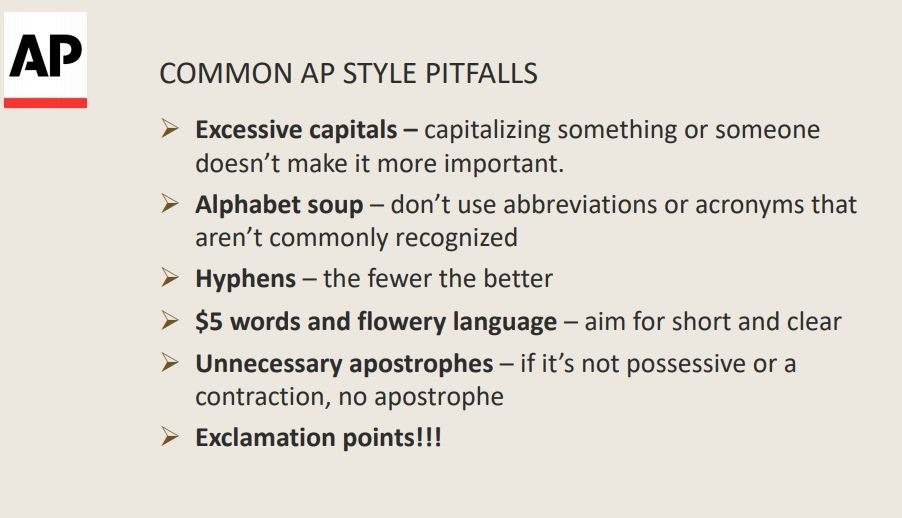6 writing mistakes to avoid
An AP Stylebook insider shares common blunders that undermine a writer’s credibility.

[Editor’s note: This content comes from Ragan Training, the go-to video library resource for communications professionals. Learn more at www.ragantraining.com]
PR pros have always battled to catch reporters’ attention and secure coverage. One of the biggest obstacles is submitting a pitch or press release with typos or common errors.
It’s the same for those in internal and executive communications. After all, nobody likes getting redlined by a boss or recipient of a company email newsletter.
Here are six common AP mistakes to avoid, regardless of your audience, courtesy of Colleen Newvine’s “Credible Content Starts Here: Think and Write Like a Reporter” session on Ragan Training:

Newvine should know. As a product manager of the AP Stylebook, she digs deeper into the more egregious of these mistakes and their fixes:
- Avoid alphabet soup: “A few universally recognized abbreviations are required in some circumstances,” says Newvine in the training session. “Some others are acceptable depending on the context. But in general, avoid alphabet soup. Do not use abbreviations or acronyms that the reader would not quickly recognize.”
She adds that abbreviations and most acronyms should be avoided in headlines.
- Give hyphens a break. “The gospel on hyphenation here is, the fewer the better,” says Newvine. “Subscribers are constantly trying to link words—proposing word or numeral conglomerates—when separate terms are often clearer and easier to grasp,” she explains, citing an “Ask the Editor” post by Stylebook editor David Minthorn.
- Lighten up on the hype. “PR people might just be able to muster more enthusiasm for topics than journalists, but exclamation points abound in press releases,” Newvine says.
The Stylebook’s entry on exclamation points says, in part: “Use the mark to express a high degree of surprise, incredulity or other strong emotion.”
“Avoid overuse,” she says. “Unless you can honestly say that you have a high degree of surprise or strong emotion about your [announcement], you can probably drop your exclamation point and use a period.”
What are the writing mistakes that grind your gears, readers?
Brian Pittman is the Dean of Ragan Training a Ragan Communications event producer. For more information about Ragan Training, contact him at brianp@ragan.com.








Useful post, It’s best to learn from other’s mistakes than to feel the urge to commit one by oneself & then think of learning. I think we’ve all made some of these mistakes to some degree or another.